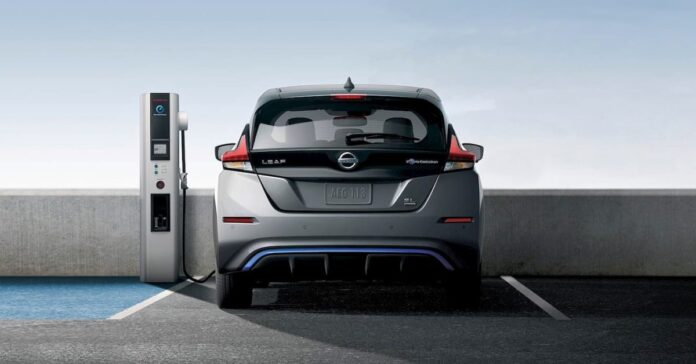After launching the iconic LEAF compact electric car in December 2010, Nissan announced Tuesday that it finally surpassed 1 million in global EV sales.
Nissan surpasses 1 million global EV sales
More than 650,000 Nissan LEAF models have been sold since its launch over 12 years ago. For many years, the LEAF was the best-selling electric vehicle, and Nissan was viewed as a forerunner in the EV market.
Fast-forward over a decade and some change, and the industry has completely flipped. Nearly every major automaker has or is planning to release its own fully electric car. Many are already working on their second or third generations EVs.
The LEAF remained the best-selling EV (cumulatively) with a decent range and a comfortable interior until Tesla’s Model 3 topped it in early 2020.
Model 3 deliveries began in late 2017, becoming the best-selling EV in 2018 and 2019 before finally surpassing the LEAF in early 2020.
Meanwhile, Nissan has failed to update the compact EV in recent years as sales continue falling. Nissan again announced the 2024 LEAF would feature the outdated CHAdeMO charging, which should have been replaced years ago.
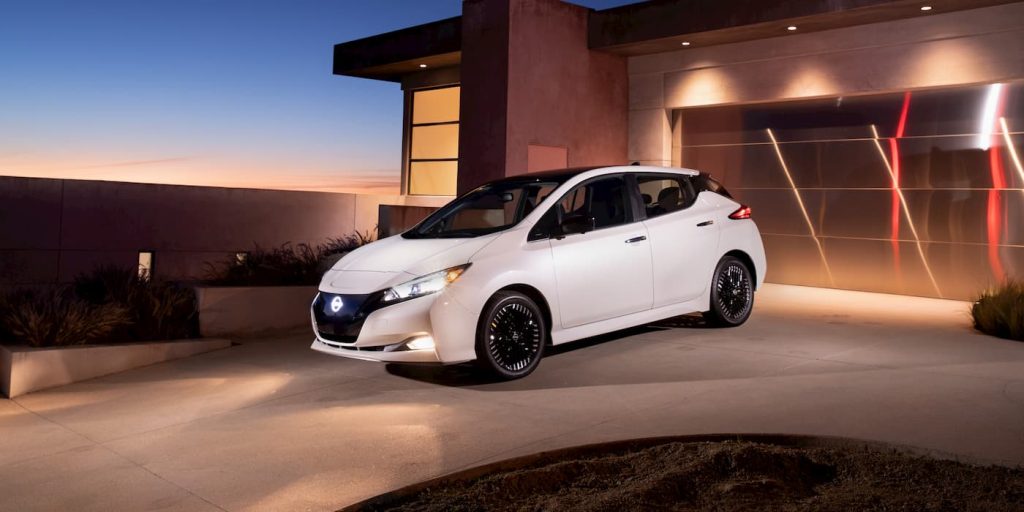
With more advanced, longer-range vehicles on the market, the LEAF has lost its touch as buyers move on.
Nissan announced it reached the 1 million global EV sales milestone Tuesday after launching its first mass-market EV over 12 years ago.
In comparison, Tesla has already delivered 888,000 vehicles through the first half of 2023 as it works to hit its guidance of 1.8 million EV deliveries this year alone.
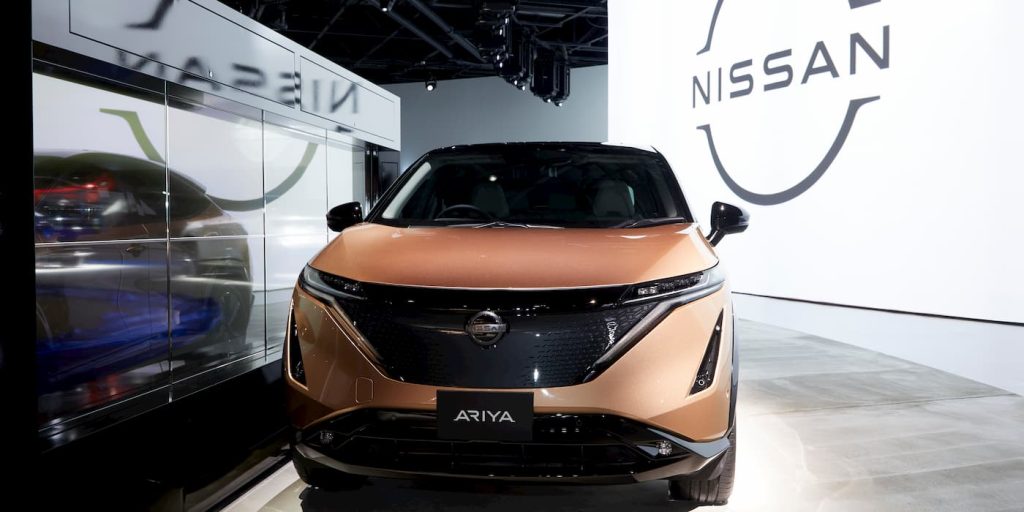
The next chapter
After over a decade (and a few delays), Nissan finally released its second all-electric global EV and first electric SUV, the Nissan Ariya.
Although it was supposed to hit showrooms all the way back in 2021, Ariya sales finally began in the US in late 2022.
Through the first half of the year, Nisan’s electric SUV is already outselling the LEAF in the US. Ariya sales have totaled 5,195, while 4,234 LEAF models have been sold.
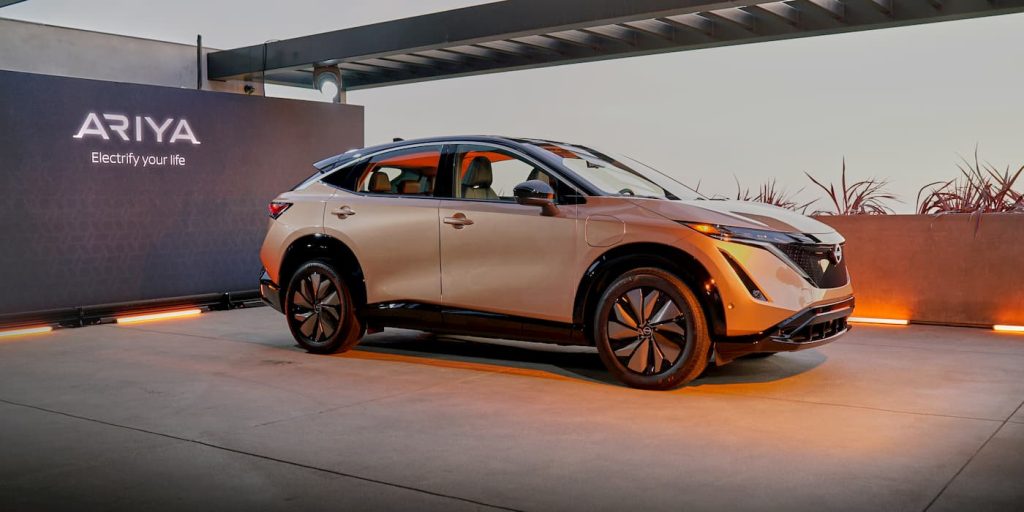
Starting at $43,190, the 2023 Ariya (63 kWh) offers up to 216 miles range. You can also opt for the bigger 87 kWh battery for up to 304 miles range for a starting MSRP of $47,190.
To boost sales and drive adoption in the US, Nissan was the first Japanese automaker to adopt Tesla’s NACS connector, giving EV buyers access to Tesla’s Supercharger network.
According to Nissan’s production schedule (via Automotive News), the automaker will begin building a pair of electric sedans at its Canton, MS, plant starting in 2026. A couple of electric crossovers will follow these over the following two years.
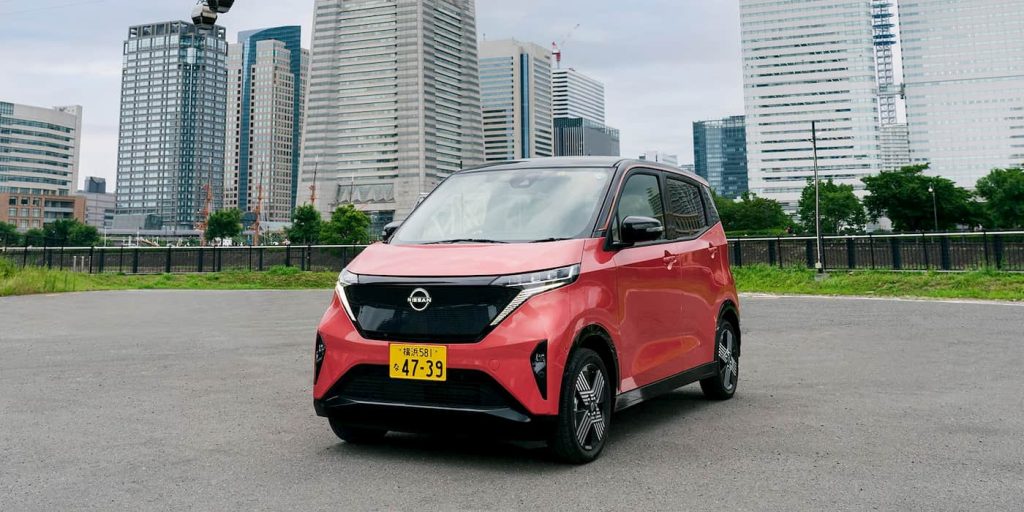
Nissan also launched its first mini EV in Japan, the Sakura. The automaker believes the Sakura “will be a game changer for the Japanese market and will make EVs much more accessible to customers in Japan.”
The Sakura starts at 2,333,100 yen (roughly $16.5K), offering up to 180 km (111 mi) WLTC Japan cycle range. Nissan says the mini EV has already gathered over 50,000 orders in Japan.
As part of its Nissan Ambition 2030 strategy, Nissan plans to launch 19 EV models by 2030. The automaker also aims to launch EVs with solid-state batteries developed in-house by 2028 capable of holding twice the energy of current lithium-ion batteries.
